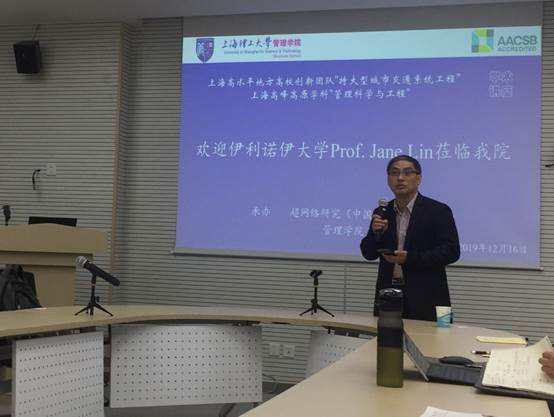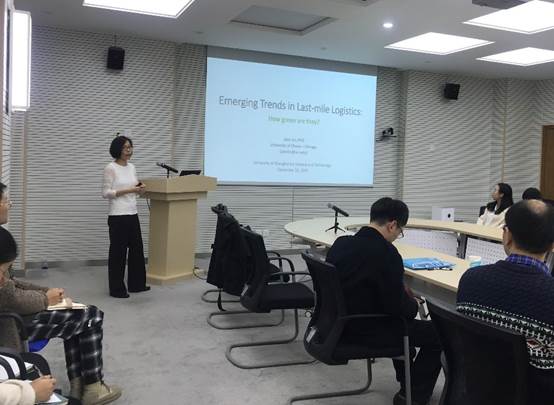On the afternoon of December 16, 2019, in the meeting room 506 of the Business School, the theme organized by the “super-large urban traffic system engineering” innovation team of high-level local universities in Shanghai, the plateau discipline “management science and engineering” and the hyper-network research center was successfully held an academic lecture on “Emerging Trends in Last-mile Logistics: How green are they? The US Experience”. The lecture was co-chaired by Professor Ye Chunming, the deputy dean of the Business School, and Professor Qian Hongcheng, the deputy director of the Hypernet Research Center.
The lecturer is the Editor/Associate Editor of SCI/SSCI journal Transport Policy/TR-D, and Professor Jane Lin of the University of Illinois at Chicago. Prof. Lin also serves as the vice chairman of the Department of Energy and Environment of the Transportation Research Council of the United States and the editorial board of several well-known journals. Prof. Lin’s research fields include transportation emissions and air quality modeling and exposure, green freight transportation and urban logistics, and computational transportation science.
Prof. Lin introduced his research work on urban green logistics over the past ten years, discussed the development trend of last-mile logistics under the reform of information technology, and focused on the logistics efficiency in terms of cost, energy consumption, emissions and other aspects combined with the recent research results of his team. , And looked forward to the future of urban logistics.
The lecture attracted more than 30 teachers and students from management, transportation, systems, industrial engineering, regional economy and other majors. The teachers and students present had a lively discussion with Prof. Lin. Prof. Lin was deeply impressed by the strong interdisciplinary atmosphere of the Business School, and hoped that both parties could strengthen exchanges and cooperation in the future.
The lectures broadened the international vision and academic thinking of teachers and students, and strengthened the exchanges between the Business School and top international research teams.




